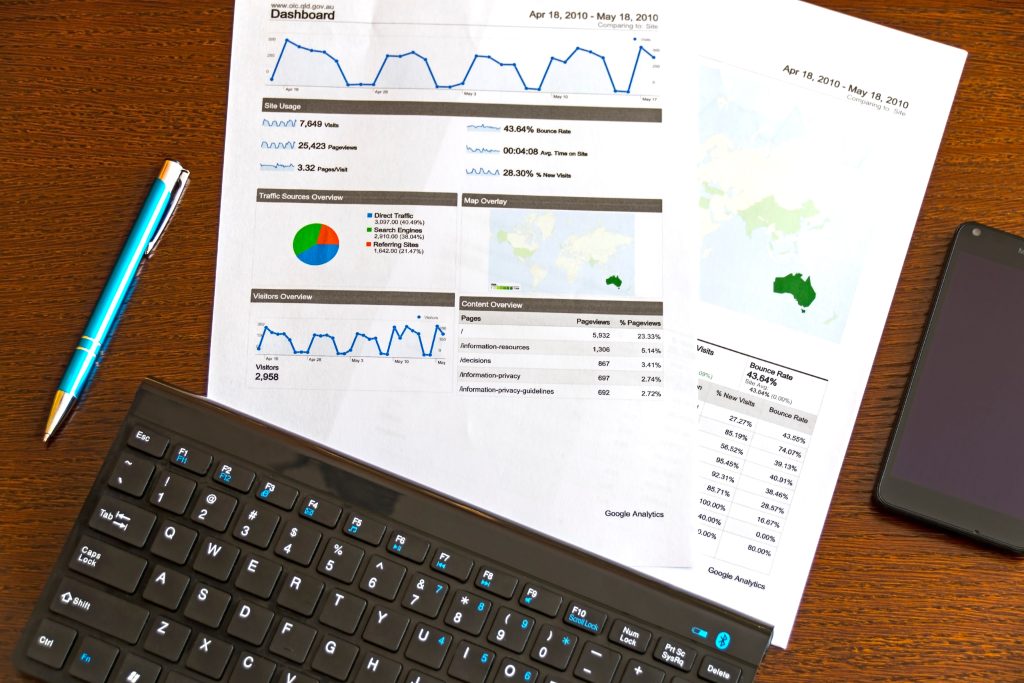Table of Contents
In the dynamic landscape of 2023, the future scope of business analytics has emerged as a compelling avenue for professionals seeking to unlock data-driven insights and elevate decision-making processes. The demand for skilled individuals equipped with a business analytics certificate course is at an all-time high, reflecting data’s crucial role in shaping competitive strategies. As industries harness the power of big data, AI, and machine learning, this transformative field promises to promote efficiency and improve customer experiences and innovation. In this discourse, we delve into the evolving trends and boundless opportunities that await those embarking on this exciting journey into business analytics.

What is Business Analytics?
Business Analytics is the systematic exploration of data to extract valuable insights and inform strategic decision-making. It employs statistical, quantitative, and predictive methods to analyze large data sets to find organizational trends, trends, and opportunities. A business analytics certificate course equips individuals with the skills to gather, interpret and present data-driven solutions effectively.
Participants learn to use various tools and techniques to transform raw data into actionable recommendations, aiding businesses in optimizing operations, enhancing customer experiences, and achieving competitive advantages. This course bridges the gap between data and informed choices, fostering a data-driven culture essential for success in today’s dynamic business landscape.
History and Evolution of Business Analytics
- Origins: Emerging in the mid-20th century, business analytics drew from operations research and statistical analysis to optimize decision-making.
- Technological Leap: The digital revolution of the late 20th century enabled data collection, storage, and processing, catalyzing analytics growth.
- Data-Driven Insights: By the 21st century, advanced tools and algorithms allowed businesses to harness big data for forecasting, trends, and customer behavior analysis.
- Predictive & Prescriptive: Evolving beyond descriptive analysis, predictive models emerged, enabling forecasts, while prescriptive analytics offered actionable recommendations.
- AI & Machine Learning: Integrating AI and machine learning unlocked deeper insights, automating processes, and enabling real-time decision-making.
- Business Transformation: Today, business analytics fuels innovation, competitiveness, and strategic planning, guiding organizations toward success in dynamic markets.
Which Businesses are using it?
Business analytics is extensively employed across various industries to derive actionable insights from data, enhancing decision-making and operational efficiency. Prominent sectors utilizing business analytics include:
- Retail: Employed for demand forecasting, inventory management, and customer segmentation.
- Finance: Utilized in risk assessment, fraud detection, and portfolio optimization.
- Healthcare: Aids in patient care optimization, resource allocation, and predictive maintenance of medical equipment.
- Manufacturing: Enhances supply chain management, production optimization, and quality control.
- Telecommunications: Assists in network optimization, customer churn prediction, and pricing strategy.
- E-commerce: Enables personalized recommendations, dynamic pricing, and conversion rate analysis.
- Marketing: Utilized for customer behavior analysis, campaign effectiveness, and social media sentiment analysis.
- Energy: Enhances resource utilization, predictive maintenance of assets, and energy consumption analysis.
- Hospitality: Used for revenue management, guest satisfaction analysis, and trend forecasting.
- Transportation: Facilitates route optimization, fleet management, and real-time tracking.
These industries harness business analytics to gain a competitive edge and navigate the complexities of a data-driven business landscape.
Why are Businesses making use of it?

Businesses are leveraging Business Analytics to extract valuable insights from data, enabling informed decision-making and improved performance. They uncover trends, customer preferences, and operational efficiencies by analyzing vast datasets. This data-driven approach enhances strategic planning, optimizes resource allocation, and refines marketing strategies. Moreover, Business Analytics empowers companies to predict market shifts, mitigate risks, and adapt swiftly to changing conditions. Integrating advanced analytics tools helps businesses gain a competitive edge by fostering innovation and agility in an increasingly data-centric landscape. In essence, Business Analytics fuels growth, innovation, and sustainable success by transforming raw data into actionable intelligence.
Future Trends in Business Analytics
- AI Integration: Business analytics will seamlessly integrate with AI and machine learning, allowing real-time predictive insights for smarter decision-making.
- Prescriptive Analytics: Evolving from descriptive and predictive, prescriptive analytics will guide businesses by suggesting optimal actions based on data-driven simulations.
- IoT Impact: The Internet of Things (IoT) will amplify data sources, enabling businesses to analyze and optimize operations in real time.
- Natural Language Processing: Advanced NLP will enable conversational analytics, allowing users to interact with data through natural language interfaces.
- Ethical Analytics: With an increased focus on data privacy, businesses will adopt ethical analytics practices to ensure responsible data usage.
- Data Monetization: Organizations will find new revenue streams by leveraging their data and offering insights to other businesses.
- Augmented Analytics: Analytics tools will become more user-friendly, utilizing automation to assist users in data preparation, analysis, and interpretation.
- Blockchain Integration: Secure and transparent data sharing through blockchain will enhance trust and reliability in analytics processes.
- Predictive Maintenance: Businesses will embrace analytics to predict equipment maintenance needs, reducing downtime and operational costs.
- Personalized Experiences: Customer analytics will drive hyper-personalization, enhancing customer experiences and loyalty.
These trends illustrate a transformative landscape where businesses obtain a competitive edge by utilising data-driven insights and navigating complex markets effectively.
Who is a Business Analyst?
A Business Analyst is a professional who bridges the gap between stakeholders and IT teams. They analyze business processes, identify needs, and propose improved efficiency and effectiveness solutions. Gathering and interpreting data help organizations make informed decisions and define project requirements. A Business Analyst acts as a communication hub, ensuring seamless collaboration and alignment between business goals and technological implementations. Their expertise lies in problem-solving, strategic planning, and translating complex ideas into actionable insights, driving success in diverse industries.

Future Scope of Business Analytics
The future of business analytics holds immense promise, poised to reshape industries. Enhanced data processing, AI integration, and predictive modeling will drive insightful decision-making. Automation of routine tasks and real-time insights will optimize operations, boost efficiency, and refine customer experiences. Ethical considerations and data privacy will be paramount, guiding responsible utilization. As businesses harness the power of analytics, they will unlock new avenues for growth, adaptability, and innovation, fostering a landscape where informed strategies thrive, and competitive edges are honed.
Future Scope of Business Analytics in India
The future of Business Analytics in India holds immense potential. As data-driven decision-making becomes paramount, businesses seek actionable insights from vast information pools. This trend, technological advancements, and the growing digital landscape propel the demand for skilled analysts. India’s burgeoning talent pool and its role as an IT hub position it favorably to lead in Business Analytics. The country is poised for substantial growth and innovation in this field, with sectors like e-commerce, finance, healthcare, and more embracing data-centric strategies.
Conclusion
In 2023, the future of business analytics appears exceptionally promising. The escalating demand for data-driven insights across industries underscores the relevance of specialized skills, as exemplified by the increasing popularity of business analytics certificate courses. Utilizing the value of data as technology develops to inform strategic decisions will remain a critical driver of success. Embracing these trends will empower professionals to navigate the complex landscape of modern business and unlock new avenues for innovation and growth.



